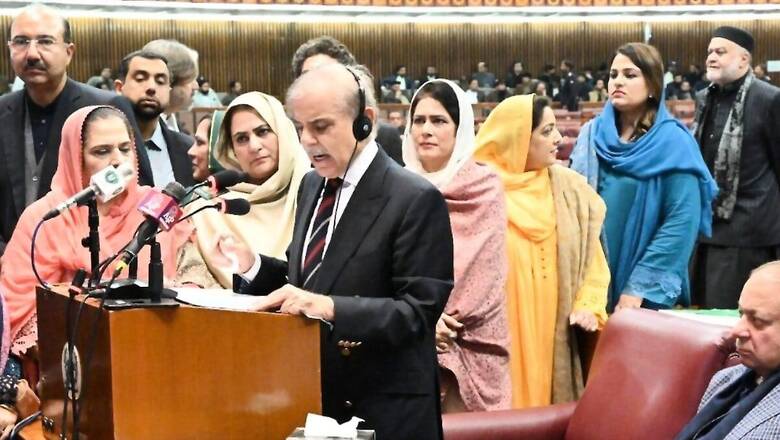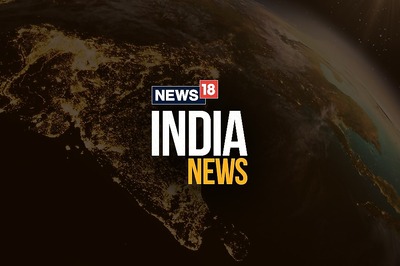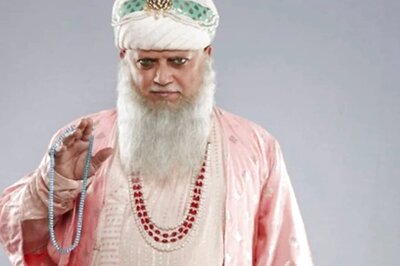
views
More than two decades ago, I told a Pakistani diplomat, “Tum sabki ghulami karne ko tayyar ho, lakin hamse dosti karne ko nahi” (You are willing to be a slave to everyone but remain unwilling to develop any friendship with us).
At that stage, I was handling India’s relations with Pakistan as a middle-level officer at the Ministry of External Affairs. Naturally, the Pakistani diplomat was not pleased with my blunt comment. Ever since I made what some of my former diplomatic colleagues would call a completely undiplomatic comment, I have again and again recalled it.
It has been strongly playing in my mind these days as Pakistan, under the PML (N) and PPP alliance governments, seeks to repair its dysfunctional economy. Prime Minister Shehbaz Sharif has clearly told his people that the first task of his government is to do so. There is no doubt that he has the support of his alliance partner, which is supporting the government from the outside, but also of the military to put the economy right.
What the Pakistani political class and no doubt the Pakistani army also know in their “heart of hearts” is that the Pakistani economy cannot be fixed unless the country is willing to change course on India. That would mean it would have to develop cooperative and good neighbourly ties with what it considers its permanent enemy.
There is no indication that the Pakistani establishment is willing to change course on India. Hence, despite whatever help China and other donors may give, Shehbaz Sharif’s aim that Pakistan should develop sufficiently to become a member of the G20 by 2030 simply cannot be achieved. As stated, some issues connected with Pakistan’s present economic crisis need analysis.
Ever since the new government took office, PM Sharif has sought to give confidence to the Pakistani business community and its donors that he is serious about economic reform and growth. He has sent out signals; the first of these was to avoid appointing Ishaq Dar, his brother Nawaz Sharif’s all-time favourite choice as Finance Minister, to helm the Finance Ministry. He has made Dar foreign minister but has given the finance ministry to a well-known professional banker, Muhammad Aurangzeb, who has had no previous political experience.
Aurangzeb has had a good reputation as a banker. He will be able to engage with the IMF and finance ministry officials of donor countries in the language of economics and finance. He will seek to remove their scepticism about Pakistan’s will for economic reform. He will seek to smooth the way for the IMF to release the remaining tranche of the present loan agreement. Even after that, it is most likely Pakistan will have to go to the IMF for another loan. Why?
In an article carried on an international news website, one of Pakistan’s leading journalists recently wrote, “A new programme with the global lender is necessary for the country, which is currently burdened by more than $130 billion—at least a third of its gross domestic product—in external debts. Pakistan was scheduled to repay $24 billion by June this year but managed to secure some relief from bilateral creditors through rollovers. The country has now to repay nearly $5 billion before the end of the fiscal year in June. Meanwhile, Pakistan’s current foreign currency stocks stand at a paltry $7.8 billion, enough to cover just about eight weeks of imports.”
It is not only external debt and its restructuring that Aurangzeb will have to grapple with. It is also a fact that Pakistan is in a classic debt trap because its current government revenues are insufficient to meet its debt payments. Hence, it has to raise debt to repay current debt payments or to get them deferred. That only means pushing the can down the road. The IMF loans and the tough conditions that they prescribe have always been controversial, not only in Pakistan but all over the developing world.
Developing countries have always asserted that the IMF ignores the realities of their conditions, where development has to go hand in hand with considerations of the welfare of the poorest sections of society who need to be subsidised.
Be that as it may, the fact is that no country can perpetually live beyond its means. If it does, the only path is to economic ruin. And Pakistan has lived for far too long beyond its means.
As this writer has noted earlier, no one wants a country with nuclear weapons to become economically destabilised, but donors are not getting impatient with Pakistan’s unwillingness to change its ways.
PM Sharif has warned his people that the country’s economic situation needs radical solutions. However, the first few steps that he has announced do not seem to indicate that he is willing to explore the real reasons for Pakistan’s current economic distress. He said that the requirements of the army would be met.
The fact is that the Pakistani army not only gets a disproportionate portion of the government’s revenues but also the army’s economic enterprises, which have made it the country’s leading economic group. Indeed, no other army in the region, with the exception of the Myanmar army, imposes such a heavy burden on the people.
Apart from assurances to the army, Shehbaz has also asked that wasteful government expenditures be eliminated. This may be a popular palliative, but it is no substitute for creating conditions for domestic and foreign investors to look at the country favourably.
As part of the process, Pakistan has to raise labour productivity, and that can only be done if it radically changes its educational policy, which is getting more and more suffused with religious overtones.
Another tired mantra that Sharif has reiterated is the support of China and the fact that this ‘iron brother’ will help in improving Pakistan’s economy. The CPEC, which is China’s flagship BRI programme, was supposed to help transform Pakistan’s economy. That was the grand hope with which Chinese and Pakistani leaders—indeed, Shehbaz Sharif’s brother Nawaz Sharif—launched the CPEC in 2013. In this period of eleven years, it has helped ease the electric power situation in the country, but nothing more. Even here, Sharif complained that the sustainability of power companies was becoming difficult because of power theft.
All things considered, Pakistan needs to change its course entirely if it wishes to move out of its present economic morass. That has to begin with a changed approach towards India. So long as it continues to persist with its anti-India obsession, it will continue to remain on an economic drip. This is because the army will continue to maintain its grip on the country’s politics and resources. It will also continue to maintain the infrastructure of terrorism and extremist thought.
Aurangzeb is not the first banker Pakistani politicians have chosen to improve their economy. His predecessors could do really nothing because Pakistan has to change its ideology and because the country’s political and strategic classes, which include the army, are unwilling to do so. Hence, Aurangzeb’s position is unenviable, and his ultimate failure is almost certain.
The writer is a former Indian diplomat who served as India’s Ambassador to Afghanistan and Myanmar, and as secretary, the Ministry of External Affairs. Views expressed in the above piece are personal and solely that of the author. They do not necessarily reflect News18’s views.




















Comments
0 comment